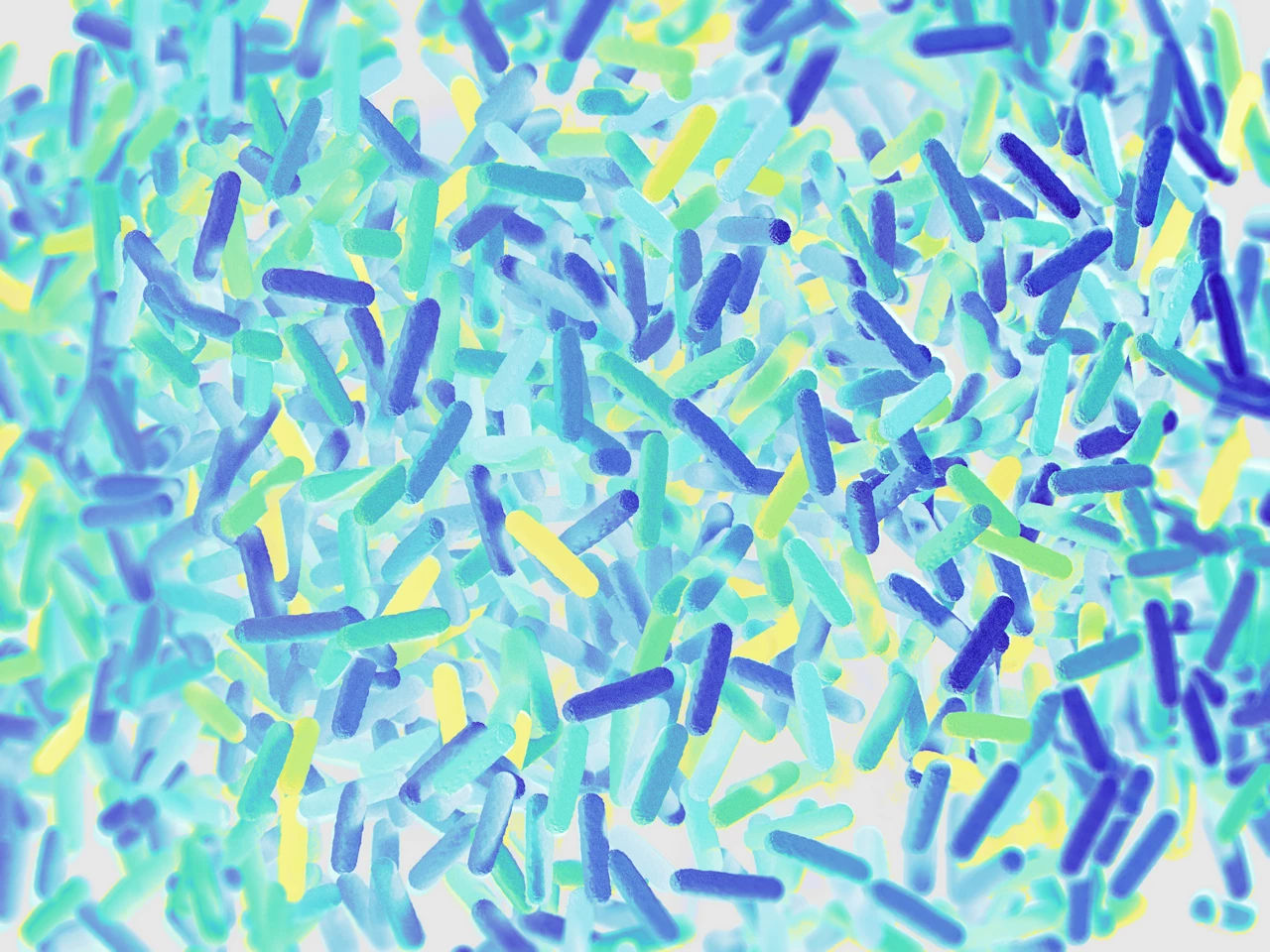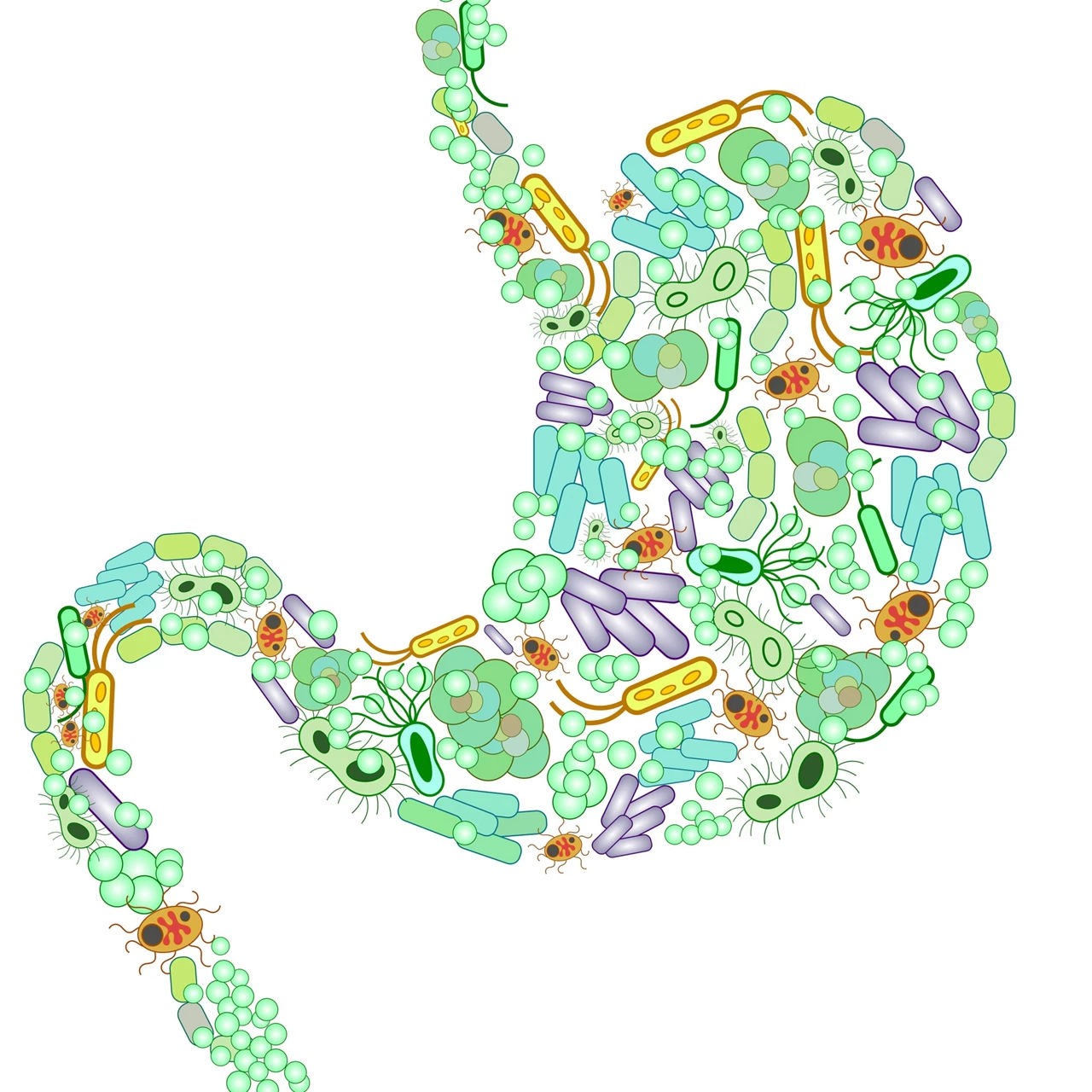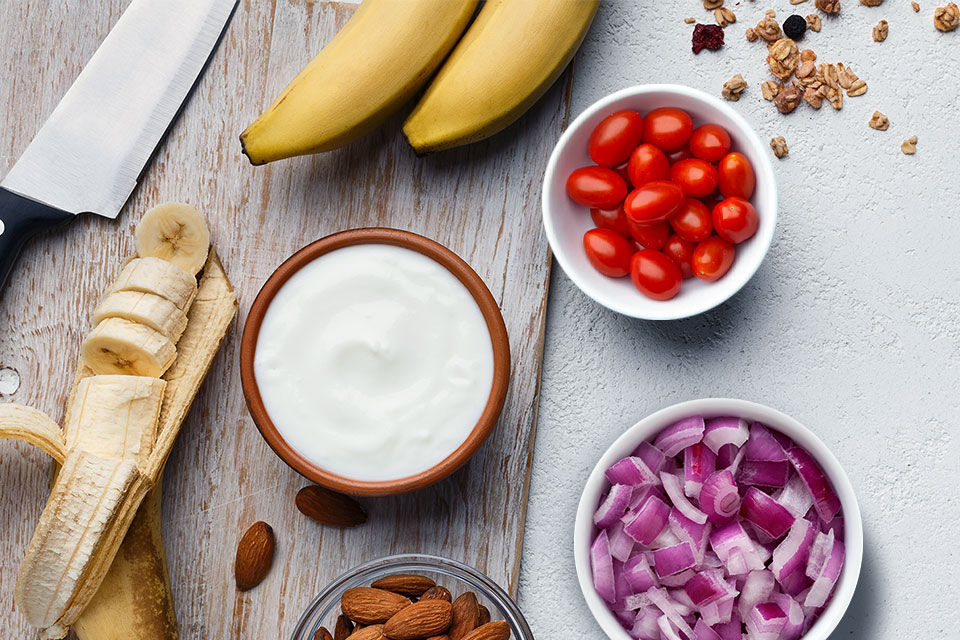Postbiotics and gut health: an emerging field of research to support the immune system
Increased understanding of the role of the gut microbiota in health has highlighted the benefits of pre- and probiotics, and now, postbiotics are emerging as a further source of support for the development of a strong and stable immune system. Produced by a natural fermentation process, postbiotics have been shown to benefit the adaptive and innate immune system and improve gut barrier function1-2.

Please log in to access this content
Simply log in or register to Nutricia Academy today to access this content as well as a host of other trusted education resources.

A healthy gut microbiota composition is essential for optimal immune system development and function in infants, and has the potential to lower the risk of disease in infancy and beyond³.
The human body is comprised of trillions of microbes (bacteria, viruses, fungi, etc) in addition to human cells. Estimates of the ratio of microbe to human cells have varied from 10:1, to more robust, recent research that suggests the split is much more of equal proportion4. The influence of these microbes on our health and body functions is far-reaching.
The digestive tract is host to many of these microbes — the gut microbiota. Our digestive system could not function effectively without them. Bacteria in the gut are not only important for healthy digestion — they also play a vital role in metabolism, cognitive function and immunity5.
Early life gut health and immune system development
The first 1,000 days is a critical window when the gut and immune system develop rapidly, as babies move from a protected environment to one where they are exposed to lots of immune challenges3. The development of healthy gut microbiota is essential for immune system development and function3. Early nutrition is the main influence on initial microbiota composition; and optimal nutrition fine-tunes the immune system and sets up metabolic homeostasis in early life, influencing long-term health3,5.
Breastmilk is the best possible source of nutrition for a healthy microbiota composition6-7. Recent research suggests around 30% of gut microbiota in breast-fed infants comes directly from their mother’s milk8.
As well as being an optimal source of beneficial bacteria, breastmilk contains prebiotic human milk oligosaccharides which positively shape the infants gut microbiota9. These prebiotics pass intact to the lower part of the infants’ gut where they are selectively fermented by beneficial bacteria such as bifidobacteria — allowing the amplification of these bacterial populations7,9. This fermentation process also creates postbiotics — bioactive components that play an important role in the regulation of biologic activity in the gut1-7.
The transformational power of fermentation
Fermentation occurs naturally in the gut, but people have also used fermentation as a method of food preservation throughout history. There are a huge variety of fermented foods in many cultures, which are consumed for both taste and health benefits. It is now recognised that many of the health benefits of fermented foods can be attributed to the postbiotics that fermentation produces13.
Fermented dairy products can improve gut health, increase infection-fighting antibodies and boost both humoral (immunity mediated by substances found in body fluids) and cell-mediated immunity13. Consumption of fermented dairy products has been shown to reduce the risk of several non-communicable diseases in adults14,15 .
The immune-boosting power of postbiotics
A whole range of postbiotic bioactive components are produced during fermentation including short-chain fatty acids (SCFAs), enzymes, peptides (proteins), polysaccharides, cell surface proteins, and vitamins (see Figure 1)12.
Postbiotics stimulate healthy gut microbiota and support immune function through the gut2,10,22.
SCFAs are a source of energy for cells and help regulate energy homeostasis16. They possess antioxidative, anticarcinogenic and anti-inflammatory properties and play an essential role in the immune system17-21.

Postbiotics have been shown to support a healthy gut microbiota22. Regarding immune function, postbiotics have also been shown to improve the ability to fight infection by increasing the antibody response to pathogens22, as well as directly influencing gut barrier function1 and intestinal immunity24.
Know your biotics
- Probiotics are naturally occurring beneficial bacteria that affect the gut microbiota when ingested10
- Prebiotics are non-digestible oligosaccharides that pass intact to the lower part of the gut where they stimulate the growth or activity of beneficial bacteria11
- Postbiotics are bioactive components produced by beneficial bacteria (through natural fermentation process), which have biologic activity in the gut1,10,12
40 years of early life science
Nutricia has over 40 years of breast milk expertise with a dedicated team of around 250 specialist scientists collaborating with hospitals, laboratories and universities worldwide to ensure we’re leaders in this field.
IMPORTANT NOTICE: Breastfeeding is best for babies. Infant formula is suitable from birth when babies are not breastfed. Follow-on milk is only for babies over 6 months, as part of a mixed diet and should not be used as a breastmilk substitute before 6 months. We advise that all formula milks including the decision to start weaning should be made on the advice of a doctor, midwife, health visitor, public health nurse, dietitian, pharmacist or other professional responsible for maternal and child care. Foods for special medical purposes should only be used under medical supervision. May be suitable for use as the sole source of nutrition for infants from birth, and/or as part of a balanced diet from 6–12 months. Refer to label for details.
- Tsilingiri K, Rescigno M. Postbiotics: what else? Benef Microbe 2013; 4(1): 101–107
- Martin R, Nauta AJ, Amor KB et al. Early life: gut microbiota and immune development in infancy. Benef Microbe 2010; 1: 367–382
- Wopereis H, Oozeer R, Knipping K et al. The first thousand days — intestinal microbiology of early life: establishing a symbiosis. Pediatr Allergy Immunol 2014; 25: 428–438
- Sender R, Fuchs S, Milo R. Revised estimates for the number of human and bacteria cells in the body. PLoS Biol 2016; 14(8): e1002533. https://doi.org/10.1371/journal.pbio.1002533
- Nash MJ, Frank DN, Friedman JE. Early Microbes Modify Immune System Development and Metabolic Homeostasis — The “Restaurant” Hypothesis Revisited. Front Endocrinol 2017; 8: 349
- Harmsen HJ, Wildeboer-Veloo AC, Raangs GC et al. Analysis of intestinal flora development in breast-fed and formula-fed infants by using molecular identification and detection methods. J Ped Gastroenterol Nutr 2000; 30(1): 61–67
- Walker WA, Lyengar RS. Breast milk, microbiota, and intestinal immune homeostasis. Pediatr Res 2015 13; 77(1–2): 220–228
- Pannaraj PS, Li F, Cerini C et al. Association between breast milk bacterial communities and establishment and development of the infant gut microbiome. JAMA Pediatr 2017; 171(7): 647–654
- Chirico G, Marzollo R, Cortinovis S et al. Antiinfective properties of human milk. J Nutr 2008; 138(9): 1801S-1806S
- Patel R, Denning P W. Therapeutic Use of Prebiotics, Probiotics, and Postbiotics to Prevent Necrotizing Enterocolitis. What is the Current Evidence? Clin Perinatol 2013; 40(1): 11–25
- Gibson GR, Hutkins R, Sanders ME et al. Expert consensus document: the international scientific association for probiotics and prebiotics (ISAPP) consensus statement on the definition and scope of prebiotics. Nat Rev Gastroenterol Hepatol 2017; 14(8): 491–502
- Aguilar-Toalá JE, García-Varela R, García HS et al. Postbiotics: An evolving term within the functional foods field. Trends Food Sci Technol 2018; 75: 105–114
- Chilton SN, Burton JP, Reid G. Inclusion of fermented foods in food guides around the world. Nutrients 2015; 7(1): 390–404
- Keszei AP, Schouten LJ, Goldbohm A et al. Dairy intake and the risk of bladder cancer in the Netherlands cohort study on diet and cancer. Am J Epidemiol 2009; 171: 436–446
- Sonedstedt E, Wirfält E, Wallstrom P et al. Dairy products and its associa on with incidence of cardiovascular disease: The Malmö diet and cancer cohort. Eur J Epidemiol 2011; 26: 609–618
- Kuwahara A. Contributions of colonic short-chain fatty acid receptors in energy homeostasis. Front Endocrinol 2014; 5: 144
- Thorburn A N, Macia L, Mackay C R. Diet, metabolites, and “westernlifestyle” inflammatory diseases. Immunity 2014; 40(6): 833–842
- Louis P, Hold GL, Flint HJ. The gut microbiota, bacterial metabolites and colorectal cancer. Nat Rev Microbiol 2014; 12(10): 661
- Natarajan N, Pluznick JL. From microbe to man: the role of microbial short chain fatty acid metabolites in host cell biology. Am J Physiol — Cell Physiol 2014 1;307(11): C979–985
- Corrêa‐Oliveira R, Fachi JL, Vieira A, Sato FT, Vinolo MA. Regulation of immune cell function by short‐chain fatty acids. Clin Transl Immunol 2016; 5(4)
- Ciarlo E, Heinonen T, Herderschee J et al. Impact of the microbial derived short chain fatty acid propionate on host susceptibility to bacterial and fungal infections in vivo. Sci Rep 2016; 6: 37944
- Mullié C, Yazourh A, Thibault H et al. Increased poliovirusspecific intestinal antibody response coincides with promotion of Bifidobacterium longum-infantis and Bifidobacterium breve in infants: a randomized, double-blind, placebo-controlled trial. Pediatr Res 2004; 56: 791–795
- Knol J, Scholtens P, Kafka C et al. Colon microflora in infants fed formula with galacto- and fructo-oligosaccharides: more like breast-fed Infants. J Pediatr Gastroenterol Nutr 2004; 40: 36–42
- Thibault H, Aubert-Jacquin C, Goulet O et al. Effects of long-term consumption of a fermented infant formula (with Bifidobacterium breve c50 and Streptococcus thermophilus 065) on acute diarrhea in healthy infants. J Pediatr Gastroenterol Nutr 2004; 39(2): 147–152



